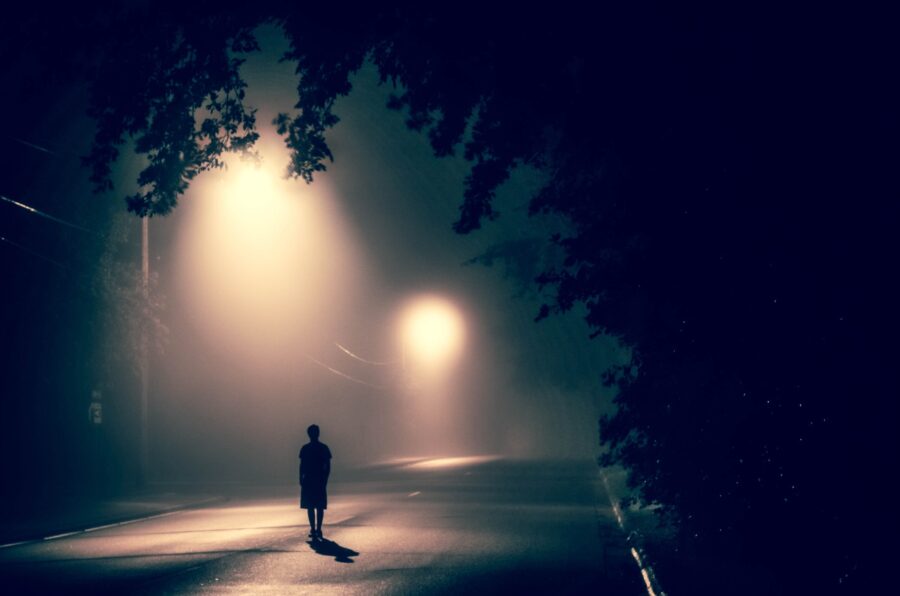Loneliness Is Incredibly Common – So What Can You Do About It?
If you’re feeling lonely, you’re not alone. According to a new Meta-Gallup survey, nearly 1 in 4 people ages 15 and up in America feel lonely, CNN reports.
The new survey of about 1000 people in each of 142 countries asked the question: “How lonely do you feel?”
The group reporting the highest rates of loneliness? Young adults (aged 19 to 29), with 27% responding that they feel “very” or “fairly” lonely.
Perhaps surprisingly, the group faring the best was people aged 65+, amongst whom only 17% reported feeling lonely.
“There is a lot of research pointing to the dangers of loneliness and social isolation among older adults,” said Ellyn Maese, a senior research consultant with Gallup. This survey “is a really good reminder that loneliness is not just a problem of aging — it’s a problem that can affect everyone at any age.”
The epidemic of loneliness
Much has been made of the “epidemic of loneliness” which the World Health Organization reported in December 2020 and the U.S. Surgeon General Vivek Murthy highlighted in a May 2023 urgent public advisory about the negative impact loneliness has on our physical and mental health. Loneliness can even shorten your life.
Since loneliness has such a pernicious effect, what can be done about it? CNN interviewed experts who offered suggestions to combat loneliness.
Why are young people feeling so lonely?
Clinical psychologist Dr. Ami Rokach, an associate professor at the Center for Academic Studies in Or Yehuda, Israel who was unaffiliated with the survey, has studied the experience of loneliness.
Rokach, who also teaches in the department of psychology at York University in Toronto, notes that young people in the transitional phase on the way to adulthood experience more uncertainty across many aspects of life, such as “a tumultuous love life, uncertainty about a professional path, and in the process of separating from their parents.” That makes young adults more likely to experience greater loneliness than older adults who have already accumulated “wisdom, friends, a family which may be supportive, and a community which cares for them,” he said.
If you’re feeling lonely, what can you do about it?
Being alone is not the same as loneliness, Rokach noted. But if you are longing for greater connection than you are experiencing, “Making friends, volunteering, taking courses where we may meet people, and learning how to be with ourselves and enjoy it, could be very beneficial,” he said.
Whether you are naturally introverted or extroverted, “human beings need social connections to thrive, and being embedded in strong supportive networks can protect our wellbeing when we’re faced with difficulties in life,” said Dr. Olivia Remes, a mental health researcher at the University of Cambridge.
Remes, who was not involved in the survey, is the author of the book “The Instant Mood Fix,” which includes strategies for combating loneliness.
Social media – frequently viewed as a tool to connect with others – can actually do more harm than good, she notes. If young adults are merely passively scrolling, comparing “the rosy posts of others and comparing it with one’s reality,” it can have a detrimental effect. In contrast, actively engaging with others, sending a private message to a friend, interacting with their posts, or sharing authentically in posts of your own can help if you’re feeling lonely.
So can interacting with others throughout the course of your day. Remes recommends talking to as many people as possible as you go about your daily tasks. “Taking the steps to practice chatting with those you encounter as you go about your day can pay off. It can make you feel better, boost your mood, and even stave off loneliness,” she said.
Other psychological research backs up her recommendation. One study found that chatting with strangers – the checkout clerk in line, the barista when you stop for coffee – was linked to happiness, elevating participants’ mood and creating feelings of belonging. The more small, positive interactions they had with others in a day, the better they felt.
For everyone, there’s an “opportunity to reduce everyday loneliness in their lives and for other people through social connection,” Maese said.
Read the full article here.
Or read more tips on making friends if you’re feeling lonely.
Nicioli, Taylor. “ The loneliness epidemic: Nearly 1 in 4 adults feel lonely, survey finds.” CNN.com, 24 Oct 2023, https://www.cnn.com/2023/10/24/health/lonely-adults-gallup-poll-wellness/index.html
Photo by Atharva Tulsi on Unsplash



